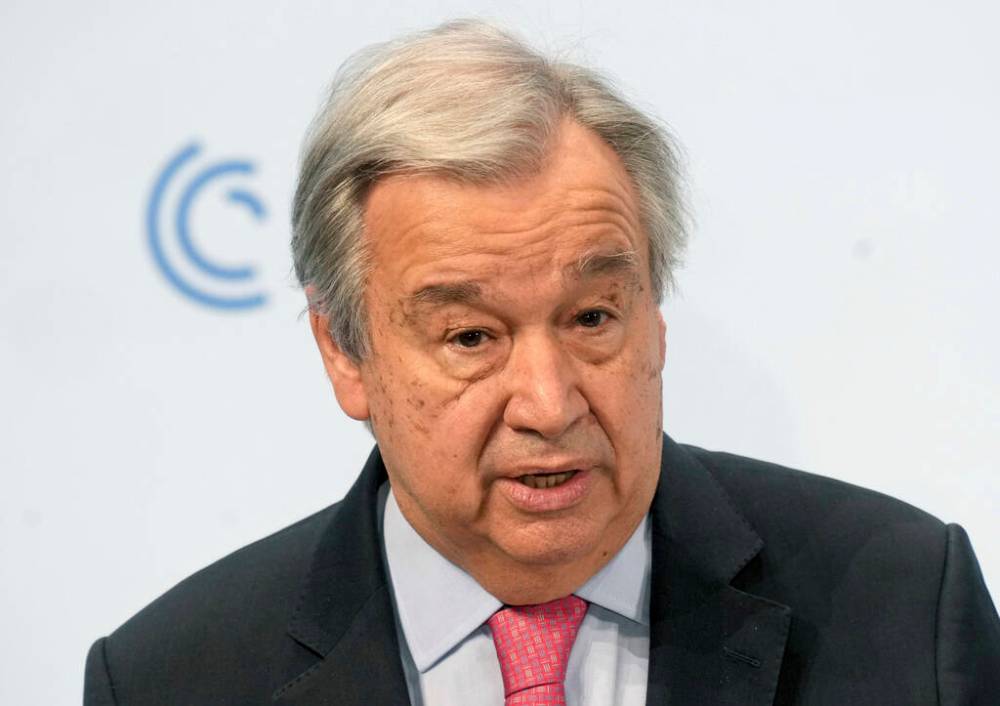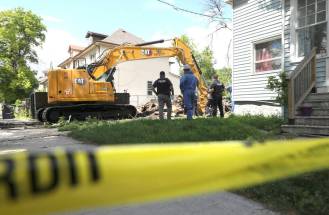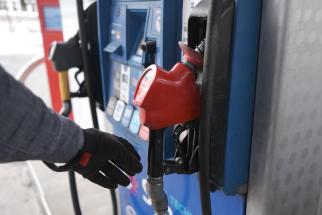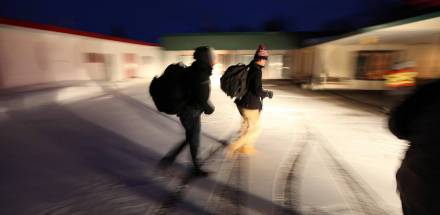Dire climate report overshadowed, but urgent
Read this article for free:
or
Already have an account? Log in here »
To continue reading, please subscribe:
Monthly Digital Subscription
$0 for the first 4 weeks*
- Enjoy unlimited reading on winnipegfreepress.com
- Read the E-Edition, our digital replica newspaper
- Access News Break, our award-winning app
- Play interactive puzzles
*No charge for 4 weeks then price increases to the regular rate of $19.00 plus GST every four weeks. Offer available to new and qualified returning subscribers only. Cancel any time.
Monthly Digital Subscription
$4.75/week*
- Enjoy unlimited reading on winnipegfreepress.com
- Read the E-Edition, our digital replica newspaper
- Access News Break, our award-winning app
- Play interactive puzzles
*Billed as $19 plus GST every four weeks. Cancel any time.
To continue reading, please subscribe:
Add Free Press access to your Brandon Sun subscription for only an additional
$1 for the first 4 weeks*
*Your next subscription payment will increase by $1.00 and you will be charged $16.99 plus GST for four weeks. After four weeks, your payment will increase to $23.99 plus GST every four weeks.
Read unlimited articles for free today:
or
Already have an account? Log in here »
Hey there, time traveller!
This article was published 04/03/2022 (1381 days ago), so information in it may no longer be current.
Its contents are as dire as dire can be, and yet the new scientific report released last Monday by the Intergovernmental Panel on Climate Change was largely eclipsed by other events in a particularly fraught news cycle.
A rapidly escalating Russian invasion of Ukraine, the recent occupation of the trucker convoy, loosening pandemic restrictions, brutal winter weather — all important issues worthy of attention, to be sure. But surely the looming end of life as we know it should be able to garner a bit of attention.
The report is grim. Time is running out, scientists (again) warn; we are, to borrow a phrase from United Nations Secretary General António Guterres, “getting clobbered by climate change.” He also called the report “an atlas of human suffering and a damning indictment of failed climate leadership.”

Indeed, scientists have been sounding the alarm on climate change for years, calling for the world’s nations to get their emissions under control. Most people should be familiar, by now, with the “1.5 Celsius threshold” as outlined by the 2015 Paris Agreement, that asks nations to commit to limiting global warming to no more that 1.5 Celsius. It’s a limit that was stressed again repeatedly at COP26 in Glasgow last fall. That limit, the thinking goes, will help stave off the worst.
Warming beyond 1.5 Celsius will lead to catastrophic storms, floods, droughts. Quoting the final line of the report, climate activist Greta Thunberg tweeted, “If we delay emission cuts we ‘will miss a brief and rapidly closing window of opportunity to secure a liveable and sustainable future for all.’ Every sentence describing the new #IPCC report is completely life changing. Literally everything is at stake.”
Some responses dismissed her as hysterical; others pointed out, rather patronizingly, that there are more immediate concerns to deal with.
But that kind of response hits on a perennial problem: the tendency to look at these concerns as individual when, in fact, war, climate change, pandemics — the kind of crises that dominate headlines and demand our attention — are all interconnected.
Mass climate migration as the result of fire, flood and famine, coupled with resource scarcity and hoarding, will, without a doubt, lead to large-scale conflict.
A warming climate allows disease to flourish; according to a ProPublica article, climate change is “driving a catastrophic loss in biodiversity that, when coupled with reckless deforestation and aggressive conversion of wildland for economic development, pushes farms and people closer to the wild and opens the gates for the spread of disease.”
Diseases that jump from animals to humans are of particular concern. A warmer climate would also mean that mosquito-borne diseases such as malaria dengue fever would be more widespread.

None of us is exempt from this. This is the only home we have, and it is simultaneously flooding and burning down. This is not some distant, hazy, far-off future we’re talking about. It’s here.
The thing is, most of us know all this. Worse, we’ve known about it for quite some time. Which raises the question: what will it take for the world’s nations to take swift, decisive action on climate change? What will it take to make people care about this existential threat?
Unfortunately, doomsday declarations and dire warnings from the world’s scientists don’t seem to be doing the job. Our future depends on our actions in the present. “Delay means death,” as Mr. Guterres intoned this week. And when the brief and rapidly closing window that remains finally slams shut on us, none of us can say we weren’t warned.





